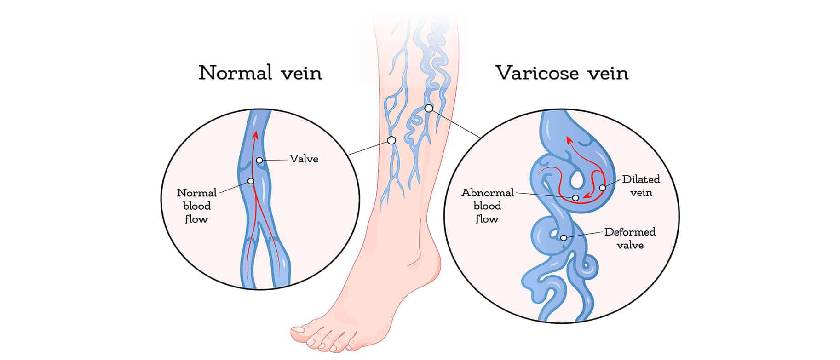Hair Transplant for Women: Cost and Considerations
Hair loss is a common concern for both men and women, but it can be particularly distressing for women. While there are a variety of treatment options available, hair transplantation is often the most effective way to restore hair growth.
The cost of a hair transplant for women can vary depending on a number of factors, including the size of the area being treated, the type of hair transplant procedure being used, and the location of the clinic.
What is a Hair Transplant?
A hair transplant is a surgical procedure that involves moving hair follicles from one part of the scalp (the donor area) to the bald or thinning area (the recipient area). The most common technique used for hair transplant is Follicular Unit Transplantation (FUT) and Follicular Unit Extraction (FUE).
FUT involves removing a strip of skin containing hair follicles from the donor area, which is then dissected into individual follicular units. These units are then transplanted into the recipient area. FUE, on the other hand, involves extracting individual hair follicles directly from the donor area and transplanting them into the recipient area.
Cost of Hair Transplant for Women
The cost of a hair transplant for women can vary significantly depending on several factors, including:
1. The extent of hair loss: The more severe the hair loss, the more grafts (hair follicles) are required, which can increase the overall cost.
2. The technique used: FUT and FUE have different costs associated with them. FUT is generally less expensive than FUE due to the simpler procedure.
3. The surgeon's experience and reputation: Highly experienced and reputable surgeons may charge more for their services.
4. The geographical location: The cost of a hair transplant can vary depending on the region or country where the procedure is performed.
On average, the cost of a hair transplant for women can range from $4,000 to $15,000. However, it's essential to remember that this is just an estimate, and the actual cost may differ based on the factors mentioned above.
When is Hair Transplantation Needed?
Hair transplantation is typically recommended for individuals experiencing hair loss due to genetic factors, medical conditions, or lifestyle choices. Some common conditions that may necessitate a hair transplant include:
- Androgenetic alopecia (female pattern hair loss)
- Thinning Hair: Hair becoming noticeably thinner over time, affecting overall appearance.
- Hairline Recession: Progressive retreat of the hairline, creating a more prominent forehead.
- Scarring Alopecia: Hair loss due to scarring from injuries, surgeries, or conditions like lupus.
- Trauma: Significant hair loss due to burns, accidents, or other physical trauma.
- Enhancement: Desire for thicker or fuller hair for cosmetic reasons
- Hair loss due to medical treatments (e.g., chemotherapy)
Types of Hair Transplant
There are two primary types of hair transplant procedures:
1. Follicular Unit Transplantation (FUT): Also known as the 'strip method,' FUT involves removing a strip of skin from the donor area (usually the back of the head) and transplanting the hair follicles to the recipient area.
2. Follicular Unit Extraction (FUE): In this method, individual hair follicles are extracted from the donor area and transplanted to the recipient area. FUE is a less invasive procedure with a shorter recovery time.
The Type of Hair Transplant Surgery You Choose
The choice between FUT and FUE depends on various factors, including the extent of hair loss, the patient's preferences, and the surgeon's expertise. FUE is generally more expensive than FUT due to the time-consuming nature of the procedure.
Success Rates of Hair Transplantation
According to a study published in the Journal of Cutaneous and Aesthetic Surgery, 94.2% of patients reported being satisfied with their hair transplant results. On average, 85-95% of the transplanted hair may fully grow back within 4–6 months of the procedure.
Cost of Hair Transplant in India
The cost of hair transplantation in India varies depending on several factors, including the type of procedure, the number of grafts required, and the surgeon's expertise. Here's a breakdown of the cost range in India:
1. Minimum price for Hair Transplant: ₹30,000 - ₹40,000
2. Average cost of Hair Transplant: ₹50,000 - ₹1,00,000
3. Maximum charge for Hair Transplant: ₹1,50,000 - ₹2,00,000
Price Per Graft for Different Hair Transplant Techniques
The cost per graft can range from ₹25 to ₹100, depending on the technique used and the surgeon's expertise.
Recovery Time
The recovery time for hair transplantation varies depending on the procedure. FUT typically requires a longer recovery period (2-3 weeks) compared to FUE (1-2 weeks).
Cost of Hair Transplant Surgery in Major Cities of India
The cost of hair transplantation can vary significantly between cities in India. Here's a rough estimate of the cost range in some major cities:
1. Delhi: ₹30,000 - ₹1,50,000
2. Mumbai: ₹40,000 - ₹2,00,000
3. Bangalore: ₹35,000 - ₹1,50,000
4. Chennai: ₹30,000 - ₹1,20,000
5. Hyderabad: ₹35,000 - ₹1,50,000
Cost of Different Factors Affecting the Hair Transplant
Several factors can influence the cost of hair transplantation, including:
1. The extent of hair loss
2. The number of grafts required
3. The type of procedure (FUT or FUE)
4. The surgeon's expertise and reputation
5. The facilities and technology used by the clinic
Other Factors Affecting the Cost of Hair Transplantation
|
Surgery Cost |
INR 30,000 - INR 2,00,000 |
|
Cost per Single Graft |
INR 20 - INR 100 |
|
Cost per Single Graft |
INR 5,000 - INR 10,000 per night |
|
Post-Surgery (PRP Sessions) |
INR 5,000 - INR 15,000 per session |
Qualification Required for Surgeons to Perform Hair Transplant in India
In India, hair transplant surgeons must be qualified medical professionals with a degree in medicine and surgery (MBBS) and a specialization in dermatology, plastic surgery, or cosmetic surgery.
Facilities Provided by Hospitals for Hair Transplant
Reputable hair transplant clinics in India offer state-of-the-art facilities and advanced technologies to ensure the best possible results for their patients. Some of the facilities provided by these clinics include:
1. Modern surgical suites
2. Advanced hair transplant equipment
3. Experienced and skilled surgeons
4. Comprehensive pre- and post-operative care
5. Comfortable and hygienic patient rooms
Considerations Before Getting a Hair Transplant
Before deciding to undergo a hair transplant, it's crucial to consider the following factors:
- Your expectations: Hair transplants can be very effective, but they are not a cure for hair loss. It is important to have realistic expectations about what a hair transplant can achieve.
- The risks: Hair transplants are a surgical procedure, and there are some risks involved, such as infection, bleeding, and scarring.
- The cause of hair loss: It's essential to identify the underlying cause of hair loss before opting for a hair transplant. In some cases, hair loss may be temporary or treatable with medication or other non-surgical options.
- The quality of the donor hair: The success of a hair transplant depends on the quality and quantity of the donor hair. If the donor area has thin or weak hair, the results may not be as satisfactory.
- The recovery process: Hair transplant surgery requires a recovery period of several weeks to a few months. During this time, you may experience some discomfort, swelling, and redness. It's essential to be prepared for this and follow your surgeon's post-operative care instructions.
- The long-term results: Hair transplant surgery is generally considered a permanent solution for hair loss. However, it's essential to have realistic expectations about the results, as the transplanted hair may not look exactly like your natural hair.
Financing Options
There are a number of financing options available to help you pay for a hair transplant. These options include:
- Personal loans: Personal loans are unsecured loans that can be used for any purpose, including hair transplants. Interest rates on personal loans can vary, so it is important to shop around for the best deal.
- Credit cards: Credit cards can also be used to pay for a hair transplant. However, it is important to be aware of the interest rates and fees associated with credit cards.
- Medical loans: Medical loans are specifically designed to help people pay for medical expenses, including hair transplants. Medical loans typically have lower interest rates than personal loans or credit cards.
Conclusion
Hair transplantation can be a life-changing procedure for women experiencing hair loss. By understanding the different types of procedures, factors affecting the cost, and expected outcomes, you can make an informed decision about whether hair transplantation is the right choice for you. Remember to consult with a qualified and experienced surgeon to discuss your specific needs and expectations.








